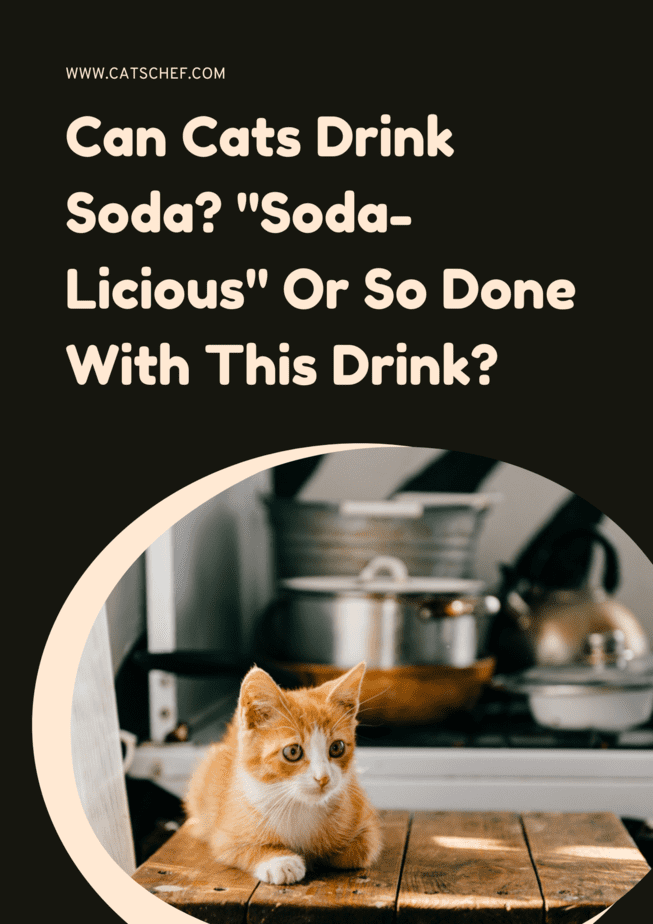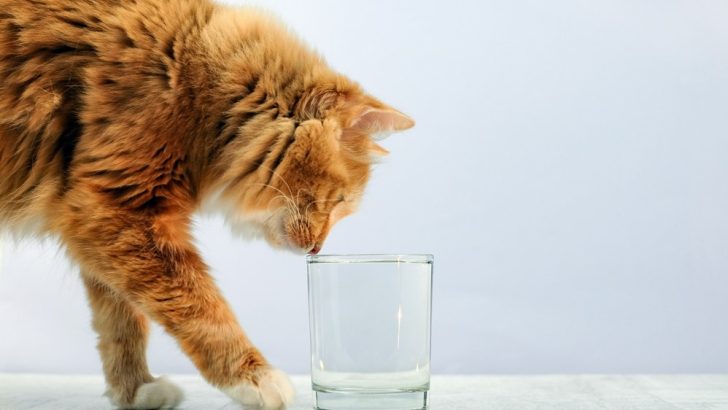Hydrating yourself with a can of Coke should be the healthiest choice. Come on, you’d be downing one every hour if that was the best way of getting your hydration levels up and running (at least something’s gotta run in this household). “Makes me wonder… Can cats drink soda?”
You’d say you’re a pretty big fan of fizzy drinks. But, your four-legged friend has been giving you the side-eye ever since you uttered the words “can of Coke.” She’s been purring and meowing, trying to melt your heart with her adorable shenanigans so that you would agree to let her have a taste.
You’d be the first to admit – Coke, Pepsi, Dr. Pepper, or Mountain Dew aren’t necessarily the definition of a healthy beverage you should drink on a hot summer’s day. But, oh boy, does a can of Coke cool you off like nothing else when you’re overheating because your apartment doesn’t know how to go below 90 °F.
What’s even worse – your curious creature doesn’t seem to be fond of water.
She keeps pushing her drinking dish away, sniffing every crevice, and splashing the water everywhere. She keeps licking around the dish, tasting the water, and (you assume) thinking to herself “Wow, I’ve never tasted anything so bland!”
You’d love to spice things up with something up your ally (like a can of Coke, of course). But, can cats even drink soda? Our friends over at the ASPCA (American Society for the Prevention of Cruelty to Animals) don’t recommend sharing a can of soda with your cat.
You’re better off avoiding such risky business, but you’re probably looking for more than “nope, don’t do that.” Hence, here’s everything you need to know about your cat’s drinking habits before you start drawing conclusions.
What can cats drink?
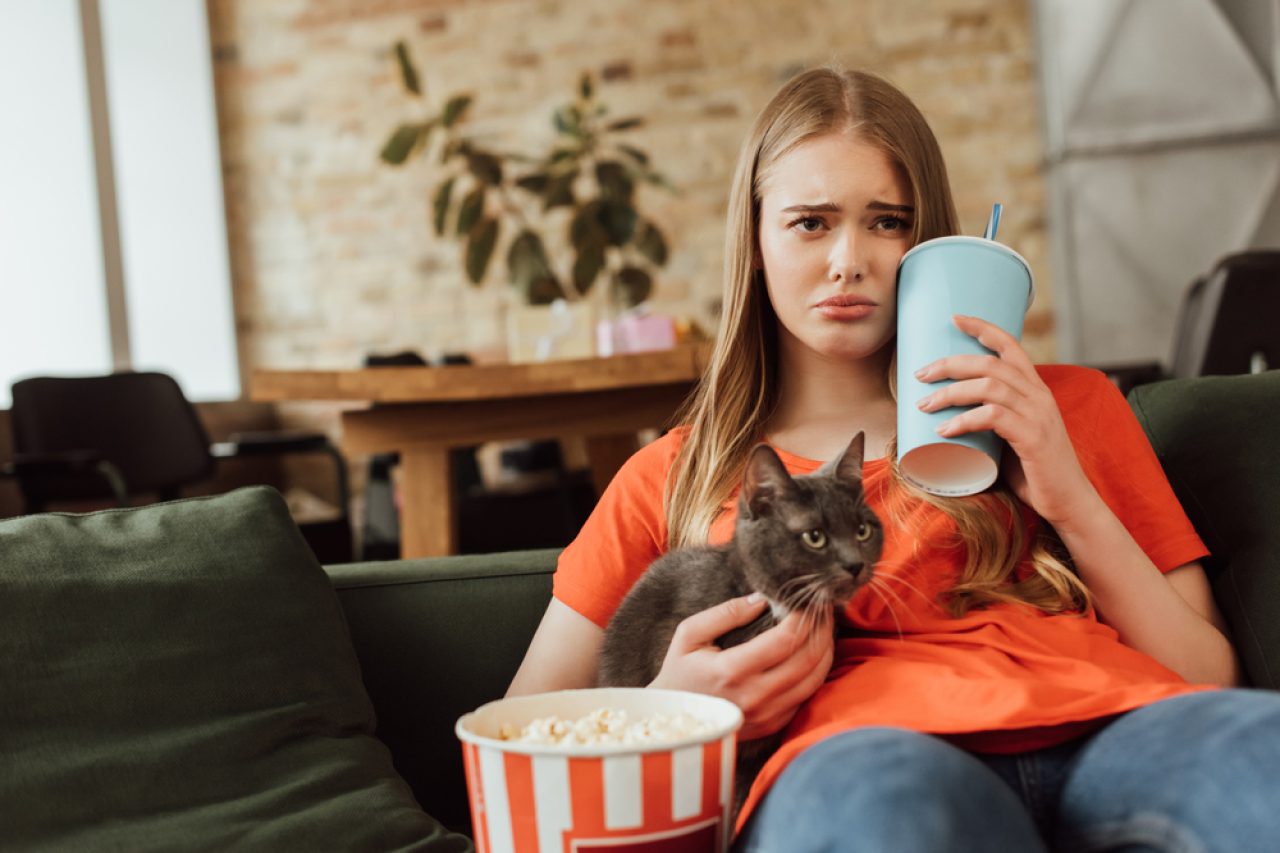
Oh boy, this could be a rollercoaster of emotions for pet parents who’ve been living a lie for years! Trust me, your cat’s hydration chronicles might not be as simple as you thought they were. Especially on the off chance that you thought your cat can drink everything you can.
Let’s start from the beginning – cats are carnivores. That means that they need a bunch of meat, animal protein, and animal nutrients in their diets to survive. They don’t really need a lot of the nutrients humans eat every day (fruits, veggies, whole grains).
They don’t even possess the digestive enzymes necessary to break down and process most foods humans eat on a regular. So, the carefully crafted cat foods and cat treats you’ve been feeding to her reflect exactly that – they’re filled to the brim with nutrients she needs to grow happy and healthy.
What does that mean when we’re talking about their drinking habits, though? Does that mean that the same rules apply when we’re considering what to let our furry friends drink? That’s exactly right – when considering how to get your cat’s hydration levels up, consider what she would be drinking in the wild.
Water, right? That’s pretty much the only thing your cat needs to drink. Provide her with fresh, clean water and she won’t have to deal with problems such as dehydration. More importantly, she won’t have to deal with added sugars, sweeteners, and preservatives that come with drinking soda.
If she doesn’t like the taste of water, she can always munch on wet foods more frequently than dry foods. “Meow Mix sounds great, but Fancy Feast’s where the fun starts! And with that can of Coke…” Argh, can cats drink soda?!
Can cats drink soda?
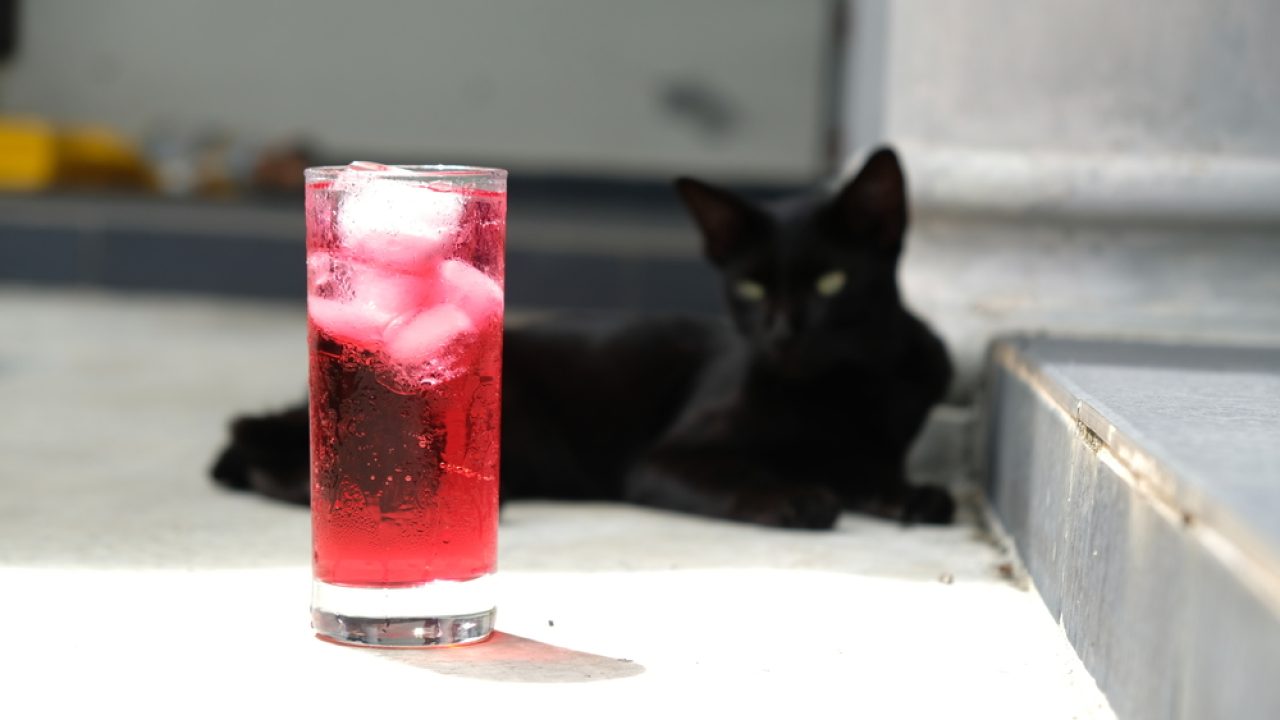
Cats can’t drink soda! We understand you’re probably devastated to learn you can’t share a can of your favorite soda with your cat on a hot summer day, but lighten up.
You can cool her off with a glass of water. You’ll want to do that once you learn the ramifications of letting your cat drink soda. And, oh boy, there are MANY!
How about we start this off by NOT ignoring the fact that soda isn’t (and shouldn’t be) recommended for human consumption? Soda, regardless of the type or the brand, typically contains a bunch of sugar, artificial sweeteners, and preservatives that are everything but healthy.
Don’t even get me started on caffeine, citric acid, and phosphoric acid! Consuming excessive amounts of caffeine can cause confusion, weakness, headaches, irritability, heartburn, muscle aches, vomiting, and diarrhea (the list goes on and on).
Some of these symptoms can develop into something much more serious and severe when left untreated. So, imagine what caffeine would do to your precious purrincess.
Citric acid and phosphoric acid aren’t necessarily bad for humans (except for their teeth!). But, that’s not to say that they aren’t bad for cats. These two types of acid are typically added to sodas to make them taste better (or last longer). But, they also make them A LOT worse for cats.
Long story short – cats can’t drink soda. Worry not, there are numerous alternatives available on the market that you don’t really have to resort to saying “No” the moment that your cat meows at you. You can always keep an ace (aka Meow Mix) up your sleeve for when she starts acting like a bratty teenager.
“Argh, why can’t I just give her a sip of soda? What’s so bad about soda?!” Keep on reading, then!
What are the reasons why you shouldn’t let your cat drink soda?
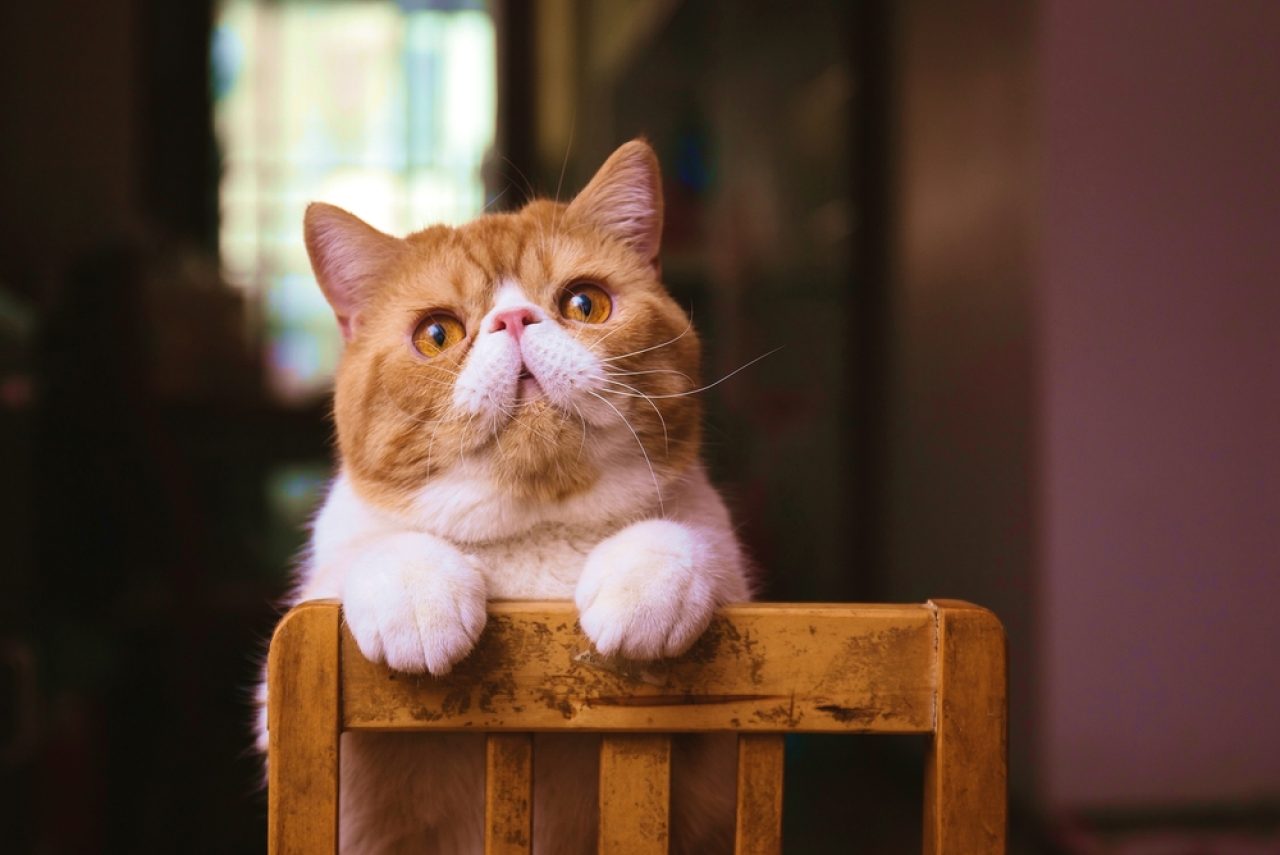
1. Caffeine
“What!? My four-legged friend DOESN’T need caffeine to function throughout the day!?” That’s right, your cat might seem miserable when she wakes up because she’s not wagging her tail. Trust me, that’s only because she’s not a dog, not because she needs a pick-me-up.
Caffeine can actually be INCREDIBLY dangerous to cats, which seems to be the main reason why cats can’t drink soda. Most types of soda (Coke, Pepsi, Dr. Pepper, Mountain Dew, Sprite, AND their diet versions) can give you that familiar caffeine kick. While you might enjoy that, your cat certainly doesn’t.
Caffeine can actually cause toxicity (or poisoning) when consumed excessively. Some of the most common symptoms are increased heart rate, hyperactivity, restlessness, raised blood pressure, cardiac arrhythmias, tremors, and seizures.
Caffeine can also cause digestive problems such as bloating, nausea, vomiting, and diarrhea. Actually, these digestive side effects can help your cat get rid of the caffeine while she’s waiting to be treated by a professional. Contact your vet (obviously!) the moment that you notice any of the symptoms.
2. Sugar, sweeteners, and preservatives
We don’t have to even tell you why sugar, sweeteners, and preservatives are bad for your cat! These (very often) hidden ingredients can cause a bunch of digestive problems to your feline friend.
Felines don’t really possess the digestive enzymes necessary to break down and process sugar. You can only assume what happens when they decide to ignore your pleas and scoff down an entire can of Coke. Vomiting, diarrhea, and even constipation can (and will) become their reality for at least a couple of hours.
And, that’s pretty mild in comparison to what most artificial sweeteners and preservatives can do to your precious purrincess. Things like Xylitol can cause health problems when consumed over a longer period of time. Not to mention that some of the safe-for-humans preservatives are poisonous to cats.
Trust me, you’re much better off avoiding anything that contains these ingredients because they aren’t a natural part of your cat’s diet for a reason.
3. Different sorts of acids
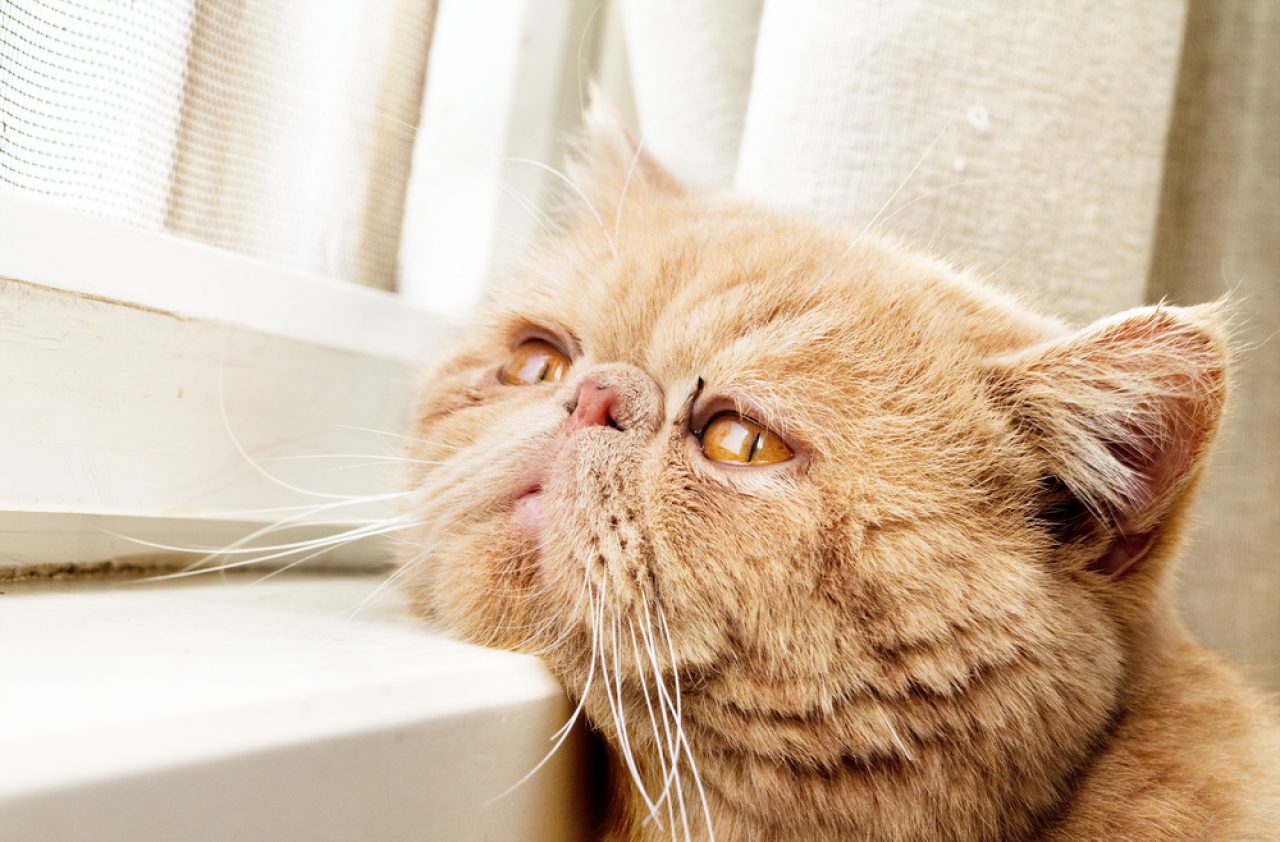
We’re talking about citric acid and phosphoric acid for the most part. But, these ingredients depend on the type of soda and the brand. Either way, you should NEVER feed anything that contains any of these ingredients to your cat. Why? – you might be asking.
First things first, when you combine acids with sugar you get a pretty HORRIBLE concoction that can wear away at your cat’s teeth. And, obviously, your cat needs strong and healthy teeth to be able to eat the foods she’s supposed to eat – like meat. Teeth-related pain can cause loss of appetite, weight loss, and anorexia.
On the other hand, acids can also generally wreak havoc when we’re talking about your cat’s digestive system. Such acids are extremely tough on her tummy and can cause her stomach discomfort, vomiting, diarrhea, and other digestive problems. Actually – citric acid’s considered poisonous to cats.
Can cats drink other drinks?
“Okay, the answer to the question “Can cats drink soda” caught me by surprise. My four-legged friend and I couldn’t be more gutted – but, can cats drink other drinks then? Maybe we could share a mocktail or a cup of tea? Come on, give us something we can work with!”
We’ve already touched upon this topic at the very beginning of the article – water seems to be the best thing you can give your cat to drink. Water’s a natural part of a cat’s diet and doesn’t contain pretty much anything that could cause her harm.
Most other drinks contain at least SOMETHING questionable! Consult with your vet and check whether he agrees to let the two of you experiment a little bit. Here’s what we gathered about cats and the different drinks they can/can’t drink.
1. Coffee
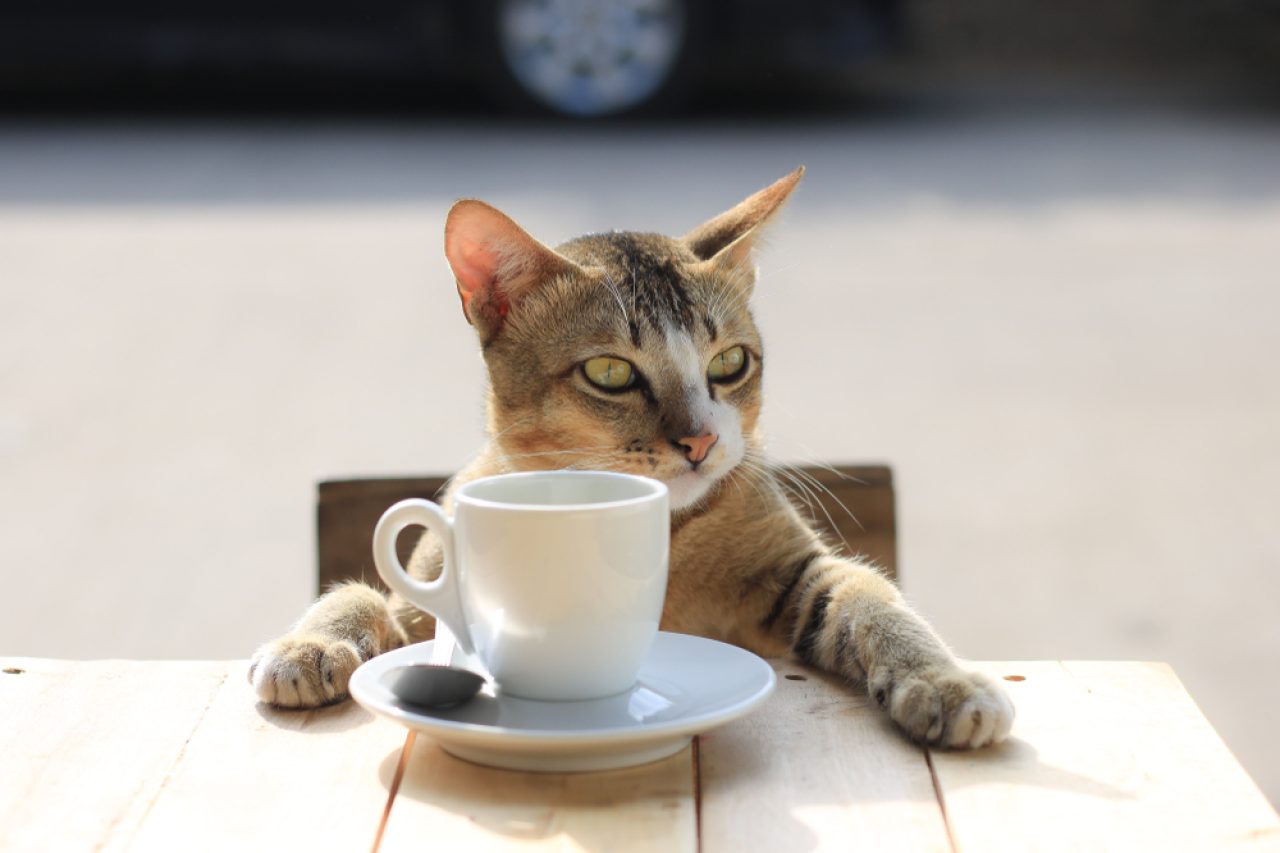
Cats can’t drink coffee! Coffee contains caffeine (obviously!) which seems to be the main reason why coffee’s on your cat’s naughty list. Caffeine’s poisonous to cats and can cause a bunch of health problems starting with caffeine toxicity.
Some of the most common symptoms of caffeine toxicity are drooling, difficulty breathing, wheezing, excessive thirst and urination, vomiting, and diarrhea. Some severe cases can even experience symptoms of abnormal heart rhythm, tremors, seizures, and coma.
Contact your vet the moment that you notice any of these symptoms (or even the moment that you notice your curious creature licking leftover coffee). Other than that, make sure your morning cup of coffee stays out of your cat’s reach AT ALL TIMES.
2. Tea
Cats can’t drink tea! Actually, they can’t drink tea for the same reason they can’t drink coffee – caffeine. Most commercially available tea (Starbucks tea, too!) contains a certain amount of caffeine that can cause harm to your cat’s health.
Consult with your vet and check whether there’s a loophole the two of you can count on. For example, diluted herbal tea shouldn’t have the same effect on your cat as the regular, store-bought type.
Chamomile, valerian, peppermint, apples, peaches, and blueberries could be exactly what your cat’s looking for – the two of you could finally live up to your Bridgerton tea party dreams!
3. Milk
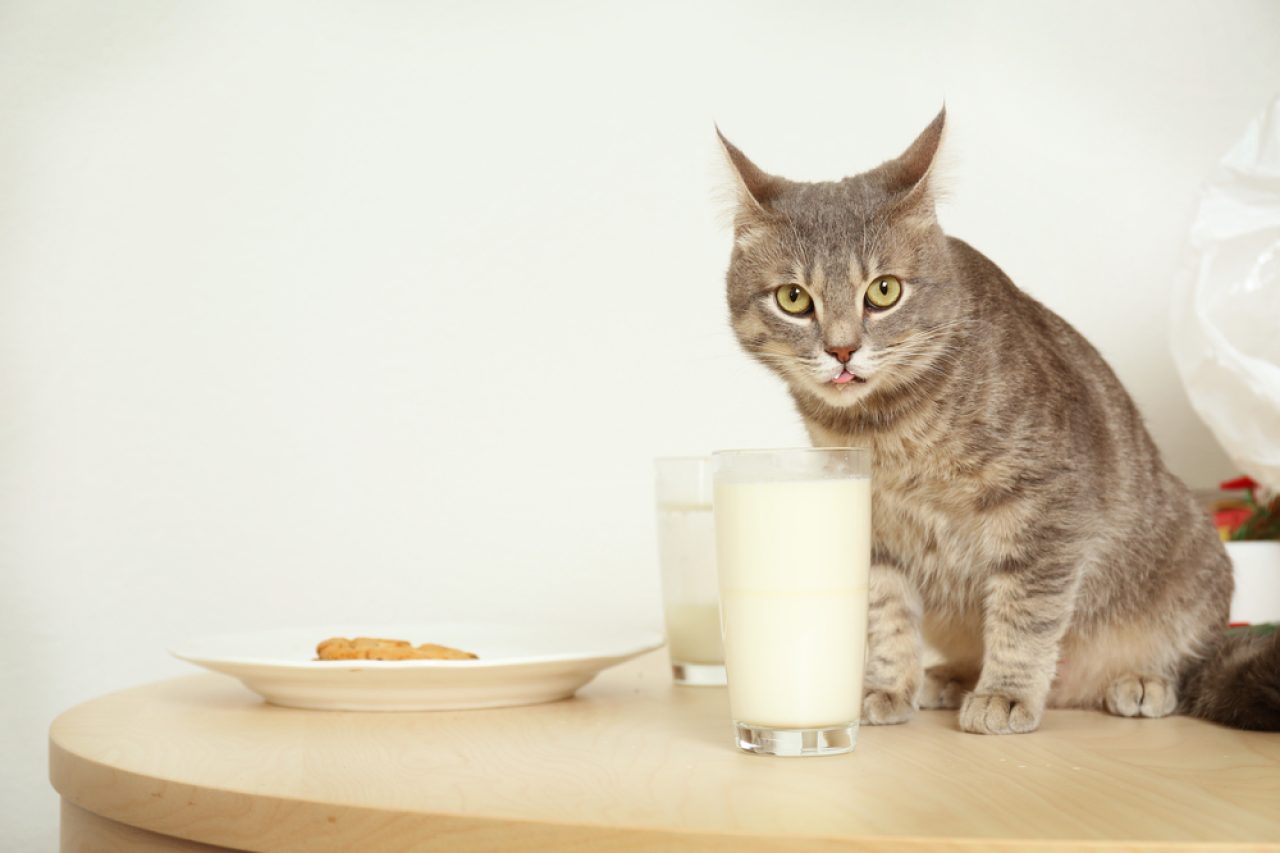
You might not be expecting this answer, but – cats can’t drink milk! Most cats are lactose intolerant, regardless of what the media made you think. While they’re kittens they can drink their mother’s milk. But, the moment they wean off of the milk they no longer need those types of nutrients.
Their digestive system starts losing the lactase enzyme that’s responsible for breaking down and processing lactose. As a result, most adult cats can’t have lactose or they start having horrible digestive problems. Some cats can have a little bit of milk, but it’s better to be safe than sorry.
4. Juice
Cats can’t have juice! This seems like a series of don’ts and can’ts. But, your cat doesn’t really need anything other than water to get her hydration levels up. Juice might be a great choice for you, but your cat could experience a bunch of digestive problems – or worse.
Not only are juices bad for cats because they contain sugar. But, they can be dangerous depending on the type of fruit they’re made out of. Oranges, lemons, limes, and cherries can send your cat to the emergency animal center because they’re poisonous to cats! Yikes!
5. Alcohol
You might be looking to share your hangover stories with your favorite four-legged friend, but… Cats can’t drink alcohol! What might seem like a lick of wine to you could potentially send your cat to your vet’s office. You’re better off keeping those hidden liquor bottles to yourself, after all.
There’s nothing else to say – alcohol’s poisonous to cats and shouldn’t be given to them under any circumstances. As little as a single sip could lead to vomiting, wobbles, hyperactivity, decreased reflexes, depression, and hypothermia. And higher doses could actually have fatal results.
